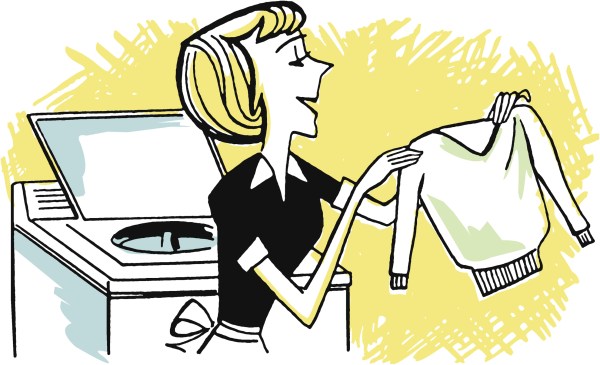A powerful fusion of cultural and economic nostalgia emerged following Donald Trump’s victorious 2016 presidential campaign. That year, three-fourths of Trump supporters believed that “for people like you,” life was better 50 years earlier. A common thread runs through various strains of the populist right: the view that the traditional family has deteriorated because of economic pressures that policymakers have either neglected or worsened through trade, immigration, and other policies that benefit elites at the expense of the working and middle classes.
This dual nostalgia comes through in the view that “you should be able to raise a family on one single income,” in the words of Blake Masters, whose bid for a U.S. Senate seat fell short in November. Masters laments in one campaign video, “We used to be able to do this. Something happened—globalization, decades of inflation. You can’t really do it anymore.”
Populist nostalgia also manifests itself in the belief, held by many social conservatives, that the decline in two-parent families reflects the deteriorating “marriageability” of men. According to this view, fewer children grow up with two parents because men no longer earn enough to make marriage worthwhile in the eyes of women. For example, in an essay for American Compass, my AEI colleague, Brad Wilcox, writes that while women continue to “prefer to marry a man who is a decent breadwinner,”
a growing share of men without college degrees no longer meet this bar. With few ‘marriageable’ men employed in the kinds of decent-paying occupations that make them attractive as potential husbands, marriage has slipped out of reach for far too many poor and working-class Americans.
Nostalgic populists on the right agree with Wilcox when he blames “Washington elites who pursued a naive path of normalized trade with China that, in a matter of years, gutted millions of moderately educated workers of their decent-paying jobs, and without support in the way of adjustment assistance or wage insurance.”
Noting the enduring hold of the mid-20th century in the American imagination, social historian Brink Lindsey has observed that “left and right are both pining for the ‘50s. The only difference is that liberals want to work there, while conservatives want to go home there.” Contemporary populists on the right are something new; they want the home life of the ‘50s but think it’s out of reach because we’re prevented from working there.
But has it really become harder to raise a family on one income? Are fewer men marriageable? Can changes in marriageability explain the decline in the two-parent family?
Answering these questions requires adopting a benchmark level of income necessary to afford the costs of raising a family—in other words, a definition of marriageability. To my knowledge, however, no one has offered a definition of marriageability and then looked at whether American men have become more or less likely to satisfy that definition over time. That is what I set out to do in a new American Enterprise Institute report. I find that the populist right’s nostalgia is misplaced, and its diagnosis of what is ailing the American family is misinformed. It’s not that family life has changed because the economy is failing men. Rather affluence and the cultural changes it has caused have altered family life—and in ways that (for better and for worse) have taken the pressures of breadwinning off men.
To be clear, American families have changed dramatically over the past 60 years. I focus on men and women between the ages of 25 and 29 to avoid complications around rising school enrollment. In the early 1960s, 34 percent of young men in that age group were sole-breadwinning married fathers, and 55 percent of young married fathers were sole breadwinners. Today those figures have plummeted to 3.5 percent and 30 percent. Meanwhile, over the same period, the share of young mothers who are single rose from 6 percent to 40 percent.
What’s happened to young men’s earnings over this period? While the median earnings of young men had roughly doubled between 1947 and 1969, that median fell 9 percent from 1969-2019. On first glance, it only looks somewhat better if you squint. Because rising educational attainment shifted the trajectory of lifetime earnings growth outward, median earnings rose 2 percent from 1969-2019 among men ages 30-39 and 20 percent among men in their 40s and 50s. At the same time, taxes fell and fringe benefits increased, so median after-tax total compensation was no lower in 2019 than in 1969, even among young men. But the 50 years after 1969 looked much less impressive than the previous 20 years. Let’s come back to that, though.
Since there is no single objectively correct threshold above which men are marriageable, I looked at trends using two different“marriageability lines.” Both thresholds look at post-tax compensation among young sole-breadwinning married fathers who were out of school in 1979. The lower marriageability line uses the 25th percentile of the distribution—the level that was lower than 75 percent of young sole-breadwinning married fathers not in school ($33,700 in today’s dollars). The higher marriageability line uses the median income ($47,500). Then I look at all young men not enrolled in school and determine how many of them have post-tax compensation that puts them above the marriageability line.
The fraction of young men that exceed the lower marriageability threshold (the “marriageability rate”) fell from 63 percent in 1969 to 58 percent in 2019. That decline is modest relative to the family changes over the same period—hardly large enough to be an important part of the story. Marriageability is higher today than in the early to mid-1960s, because marriageability rose rapidly in the late 1960s. And basically the entire decline in marriageability occurred during the 1970s. That timing is inconsistent with populist explanations for family change focused on trade with China (which became a member of the World Trade Organization only in 2001) or rising immigration (the foreign-born share of the population was still at 1940s levels in 1990).
Furthermore, using the higher threshold, marriageability rose from 30 percent in 1969 to 40 percent in 2019—an all-time high.
Perhaps the story is different for disadvantaged groups. For the one-third of young men with the lowest levels of educational attainment, the trends are very similar to those of young men generally. By the lower threshold, marriageability falls modestly, from 47 percent to 43 percent, but by the higher threshold, it rises from 17 percent to 25 percent.
The story for black men is different—it’s better. Using the lower marriageability line, the rate for young black men rises from 31 percent to 43 percent, and it rises from 8 percent to 25 percent using the higher marriageability line.
The nostalgic populist interpretation of men’s earnings trends presents a rich target for irony. Rather than declines in men’s pay leading to family change, cultural changes related to family life may have lowered men’s pay. Having a wife and kids is a motivator for men to prioritize earnings over other competing priorities. When there is less marriage (or later marriage), fewer young men will have families to support and will have less incentive to find, take, and keep the highest-paying job they can. The sharp decline in shotgun marriage reduces the incentive on nonresident fathers to prioritize earnings. The decline in fertility also weakens male attachment to the labor force and puts less pressure on them to maximize earnings. Increased work among wives (and especially mothers) similarly reduces economic pressures on husbands.
In another irony, increased work among wives may have eroded what I call “breadwinner rents.” The idea is that those men in the 1950s and 1960s benefitted from how widespread was the norm that a man should be able to raise a family on one income and the complementary norm that mothers should not work. I argue that during this earlier era, many men were paid more than their marginal value to their employers’ bottom lines would have dictated. But as the number of dual-earner families increased rapidly in the 1970s and after, the logic of breadwinner rents became outdated: Why pay a man enough to raise a family on one income if the family has two? The demise of breadwinner rents would have slowed men’s wage growth to sub-productivity-growth levels, given that for decades men’s pay had raced past productivity growth.
Centering changes in marriage, fertility, and female workforce participation highlights the role of choices in explaining family change. Those choices have reflected affluence, not economic distress. I describe two ways in which affluence affected family changes. First, it opened up greater professional opportunities for women, as I describe in my report, which had follow-on effects. I show that a steadily rising share of young women earn enough to surpass the (male) marriageability line themselves—increasing from 1 percent in 1962 to 50 percent in 2019 (using the lower marriageability line). Young African American women have been as able as their male counterparts to exceed the marriageability line for the past 15 years. The issue is not that men’s marriageability has declined (though perhaps it has declined more in non-economic terms!). It is that women’s economic standing relative to men has improved.
Affluence also affected families by allowing the nation to afford a more generous safety net. The safety net does not provide a lavish lifestyle, but it provides some parents enough to substitute partly for the earnings of a spouse. I compared the family income (including cash and noncash benefits) of young single mothers in the bottom third of educational attainment to the median earnings of young men in the bottom third of educational attainment (this time using a different median year-by-year). I found that for the past 20 years, more than half of single mothers have exceeded the male median earnings. Today, among less-educated young adults, close to two-thirds of single mothers more than match the earnings typical of men. That compares against about 20 percent in 1979 and against about 40 percent today if safety net benefits are ignored.
The simple fact is that Americans have voted with their wallets—for more stuff, smaller families, and less time devoted to housework, raising kids, and investing in communities. It is not that a male breadwinner can no longer support a family at 1969 living standards. Rather, more women have professional aspirations, more young adults want to spend more time childless and single, and more adults of all ages prefer a more comfortable lifestyle that often requires two incomes.
It’s not that single mothers increasingly question their partners’ ability to provide. They’re just better able to get by alone than in the past and have fewer reasons to commit to their children’s fathers. To be sure, many of these men are adrift, but that, too, reflects cultural changes in an affluent world that have marginalized their roles and left them socially untethered.
We can—and often should—lament our collective decisions, but we should not be under the illusion they reflect increased economic duress in America. Policymakers who embrace the narrative of economic decline may effectively stoke populist outrage, but the stories they tell will not lead to improvement in Americans’ lives.








Please note that we at The Dispatch hold ourselves, our work, and our commenters to a higher standard than other places on the internet. We welcome comments that foster genuine debate or discussion—including comments critical of us or our work—but responses that include ad hominem attacks on fellow Dispatch members or are intended to stoke fear and anger may be moderated.